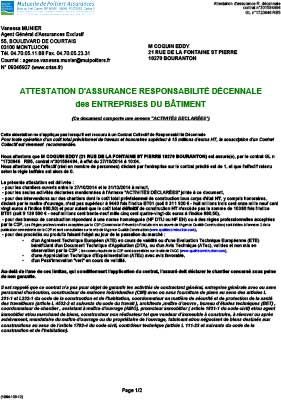It’s essential to maintain accurate balance sheet records to evaluate the franchise’s financial health. Franchise owners need to provide regular financial statements to the franchisor, which typically includes balance sheets, income statements, and cash flow statements. difference between horizontal and vertical analysis These reports provide valuable insights into the financial health and performance of each franchise location. Franchises need to clearly report revenue from contracts with customers, which includes income generated from the sale of goods or services.
Are Franchise Agreement Fees Negotiable?
The only real exception to this rule is if your franchisor provides services which are specified in your Franchise Agreement document as being paid for by the initial fee. If you are looking into franchise tax accounting treatment, you probably understand the basics of a franchise system. Understanding how your franchise fee works is an important part of getting the best from your career as a franchisee. When you choose to work with Guardian CPA Group, you’re not just hiring an accounting firm; you’re partnering with a member-based organization invested in your success.
Cash Flow Statement
Franchises generally come with recurring costs in the shape of franchise fees, debt repayment and staff. While a cash flow statement is a good start, your best bet is to use a cash flow dashboard to track all your transactions. The smart ones will even show what income and expenses are coming up, so you can see how cash flow will look in the future. Cash flow dashboards work by combining data from your bank account, POS system, payroll, and invoicing software to tell you how much you have to spend.
Choosing the Right Software
Want to learn more about what you get from your Fantastic Services franchise fee? Just all the information you need about how a Fantastic franchise helps you create a business which grows. One of the ways what is marginal revenue this is shown is in how the tax system treats one key element of any franchise system – the royalty fee. Additionally, many franchisors benefit from rebates and incentives from approved suppliers.
How We Can Help with Franchise Accounting
These fees are designed to support the franchisor’s national advertising and marketing efforts, which in turn benefit all franchisees. Both bookkeepers and accounting firms also lack specific franchise experience. This means you might end up managing more of the financials than you bargained for.
The rights to do any of that comes at a price — a price that’s most commonly referred to as a franchise fee. At the end of the first year, the company will reverse the unearned revenue to revenue on the income statement. At the end of the year, the portion of unearned liability will be reversed to revenue on the income statement. The franchisor will receive the cash from the franchisee in exchange to provide the franchise. It will be recorded as an unearned liability and amortized to revenue based on the lifetime.
A franchise attorney can provide guidance on potential legal outcomes and options for resolution. Overall, while franchise agreement fees are generally non-negotiable, there are exceptions in certain cases. Franchisees should carefully review the terms of the agreement and consult with legal professionals to understand their options and make informed decisions. When it comes to franchise agreement fees, it is important to understand that in the franchise industry, these fees are typically non-negotiable. Franchise fees are set by the franchisor and are generally fixed amounts. The advantages of contributing to a collective advertising fund are numerous.
As a result, franchisees often start off with more debt than a sole proprietor. Having a partner you can trust with your financials gives you the time and confidence to manage the rest of your business with the peace of mind that your financials are in order. Having what is the meaning of understated and overstated in accounting all your brand partners use the same accounting vendor gives you greater visibility into your overall brand health and helps reinforce standardized procedures. Not to mention having a regular stream of clients found for you via our constant online marketing efforts.
- It might go without saying, but owning a franchise doesn’t come cheap.
- Effective internal controls will help minimize the risk of financial loss and provide assurance to franchise owners and stakeholders.
- In addition to the needs of single-unit franchisees, multi-unit franchisees require levels of visibility to accurately capture their full financial picture.
- Are you considering opening a franchise business or already operating one?
- Most franchise businesses will include these accounting tasks in order to achieve success.
- They’ll make sure the fees are collected by collecting the fees and paying the bills.
It helps identify any gaps in cash flow and allows for better decision-making to address any potential shortfalls. It is advisable for prospective franchisees to consult with a franchise attorney to understand the negotiation possibilities within the franchise agreement. In addition to advertising and royalty fees, there may be other ongoing fees that franchisees are required to pay. Franchisees often contribute to a collective advertising fund that is used for national or regional marketing campaigns. This fee may be a set monthly amount or calculated based on a percentage of the franchisee’s gross sales.
They can also assist with the complex task of preparing financial statements and navigating any accounting issues that may arise. Franchise owners are typically required to pay ongoing royalty fees to the franchisor, which is a percentage of their revenue. Accounting systems should be in place to track and collect these fees and ensure they are accurately recorded in the financial statements. A franchisee is an individual or entity that enters into a franchise agreement with a franchisor to operate a business under their established brand.


